You might think your pantry is filled with wholesome goodies, but some everyday foods could be more like plastic than you’d expect. Don’t worry—you’re not the only one who’s been fooled by clever marketing and confusing labels. We’re here to break it down so you can make informed choices for you and your pets. Knowing what you’re consuming and feeding your furry friends is important, and it turns out some of these foods are not as natural as they seem. Let’s dive into the surprising list of items that might make you rethink your next grocery run.
1. Processed Cheese
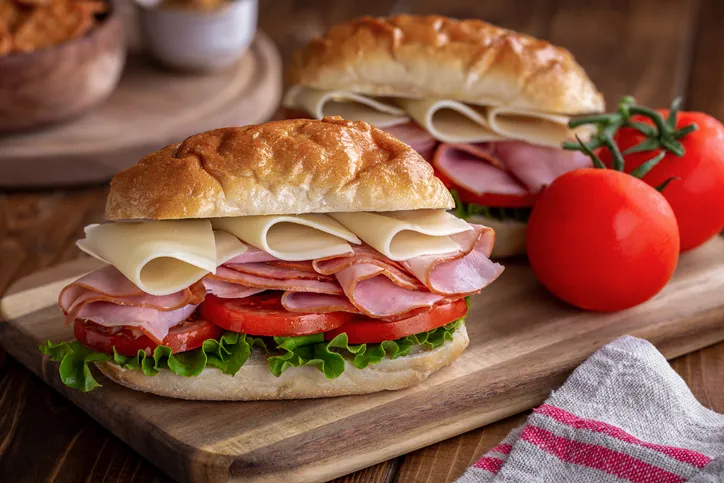
If you love a good grilled cheese sandwich, you might want to take a closer look at that slice of processed cheese. While it melts beautifully, processed cheese often contains a cocktail of additives and emulsifiers, making it closer to plastic than you might wish. According to Dr. Marion Nestle, a professor of nutrition, food studies, and public health at New York University, processed cheese can contain less than 51% actual cheese. The rest is made up of emulsifiers, oil, and other non-dairy ingredients. So, the next time you’re grocery shopping, consider opting for natural cheese instead.
Your pet might also be affected if you’re tempted to share your cheesy snacks. Pets often enjoy the taste, but the high sodium and artificial ingredients can be harmful to their health. It’s better to provide them with treats specifically intended for animals. These specialty treats are formulated to ensure they get the nutrients they need without the unnecessary fillers. Next time you’re tempted to share, remember that it’s not just about the taste, but what’s inside that counts.
2. Margarine
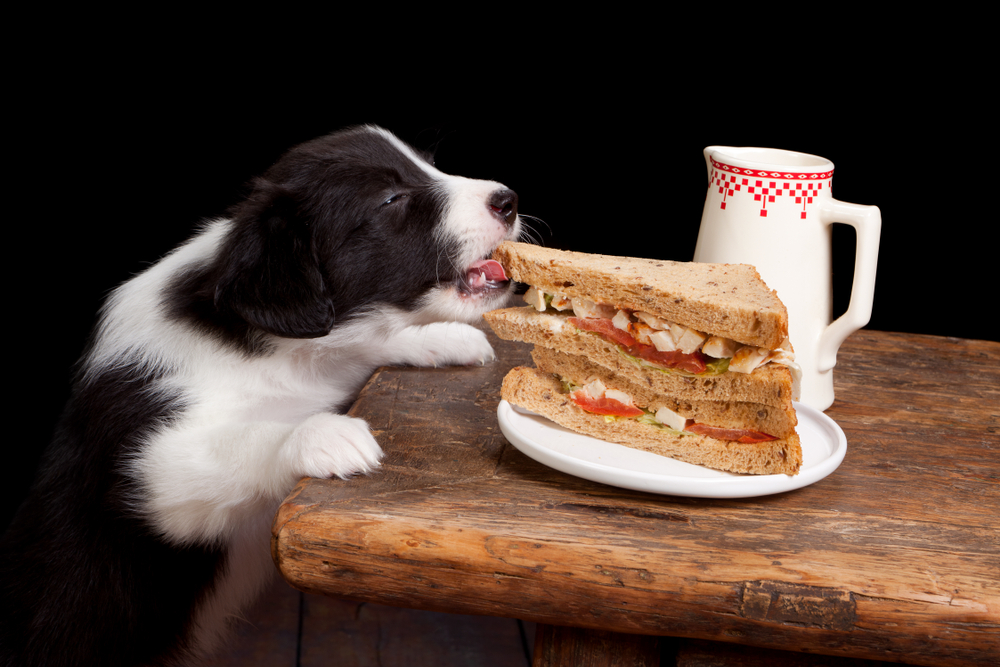
Margarine might seem like a healthier alternative to butter, but its creation process involves a significant amount of processing. Hydrogenation, the process used to solidify the oil in margarine, creates trans fats, which have been linked to increased risk of heart disease. The texture and spreadability that make margarine convenient also mean it’s filled with artificial ingredients. These components bind together in a way that makes margarine more akin to plastic than its dairy counterpart. When choosing spreads, it might be better to go for natural butter or even plant-based alternatives that don’t rely on hydrogenation.
Your pet doesn’t benefit from margarine either. While the smell might attract them, the processed oils and fats aren’t ideal for their diet. Animals don’t metabolize hydrogenated oils well, which can lead to digestive issues or even long-term health problems. If you’re looking for a way to share a treat with your pet, consider a bit of plain cooked meat or a pet-safe snack instead. It’s always best to stick with options designed with their health in mind.
3. Packaged Baked Goods

Packaged baked goods often boast long shelf lives, but that longevity comes at a price—often in the form of preservatives and other additives. While they may taste delicious, these added chemicals can render the food less like your grandma’s homemade cookies and more like a chemistry experiment. A study published in the journal Food Chemistry highlights that many packaged goods can contain additives such as propylene glycol, a compound more commonly found in antifreeze. This doesn’t mean all packaged goods are off the table, but it’s wise to check the ingredient list for anything that sounds unfamiliar or overly scientific. When possible, grab fresh bakery items or try baking your own treats.
If your dog’s been begging for a bite of your cookie, think twice before obliging. Many of the preservatives and additives in packaged baked goods aren’t suitable for pets. These ingredients can disrupt their digestive systems and aren’t part of a balanced diet. Just like with human food, less processed is generally better. Opt for homemade treats or those specifically made for pets.
4. Instant Noodles

Instant noodles are a pantry staple in many homes thanks to their affordability and ease of preparation. However, they’re not just noodles; the seasoning packets often contain a slew of artificial flavors, preservatives, and high sodium content. The noodles themselves might also be flash-fried in palm oil and contain ingredients like tertiary butylhydroquinone (TBHQ), a preservative that extends shelf life but isn’t exactly natural. While it’s convenient, consider that the noodle blocks are far from the wholesome grains they purport to be. For a healthier alternative, think about trying fresh or whole-grain noodles.
Animals are less likely to be interested in your instant noodles, but on the off chance they are, it’s good to keep them away. Even small amounts of the high sodium and artificial ingredients can affect your pet’s health. It’s easy to whip up a small portion of plain rice or pasta if your pet is curious about what you’re eating. Sharing a meal with your pet can be a loving experience, but it’s important to ensure it’s safe for them to consume. Keep your pantry stocked with options that are safer for everyone involved.
5. Microwavable Popcorn

Movie nights and popcorn go hand in hand, but the microwavable version might not be as harmless as it seems. Many brands use a chemical called diacetyl in their butter flavoring, which has been linked to serious lung issues, known as “popcorn lung,” in factory workers. While diacetyl has been removed from many products, some still contain it or similar compounds. Dr. David Michaels, an epidemiologist and former Assistant Secretary of Labor for Occupational Safety and Health, emphasizes the importance of checking labels for harmful ingredients. If you’re a popcorn fan, consider air-popping your own kernels for a safer and equally tasty snack.
Your pets might be interested in popcorn’s texture and taste, but microwavable varieties are a no-go. The fake butter and seasonings can be harmful to them, especially since pets can be more sensitive to artificial ingredients. If you feel like sharing, make sure it’s plain and air-popped, without added salt or butter. This way, you can enjoy your snack without worrying about your pet’s health. Sharing responsibly means everyone can enjoy the movie night without any hiccups.
6. Non-Dairy Creamer
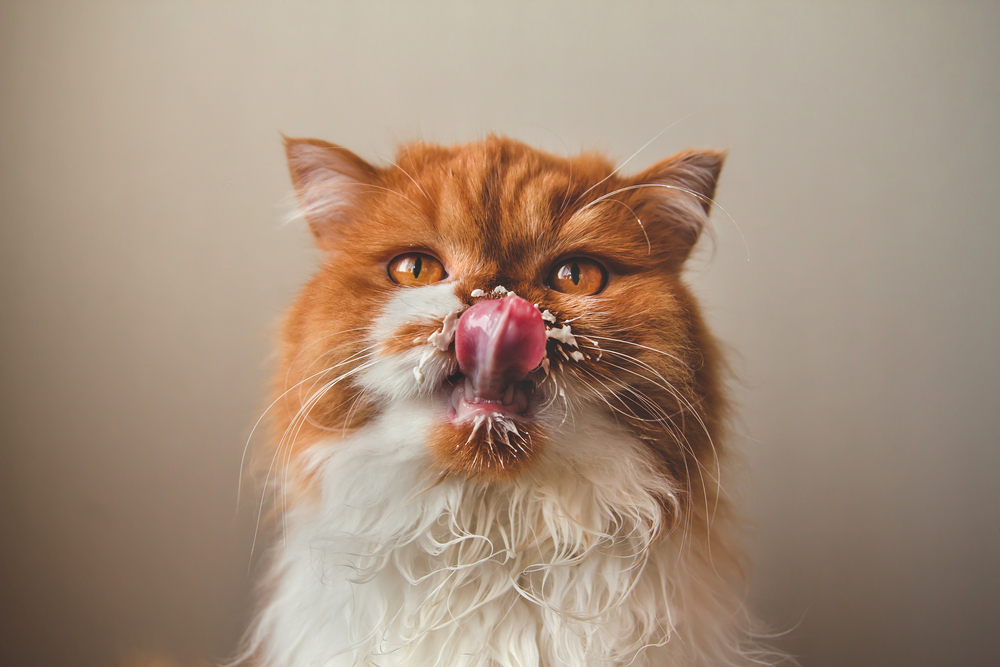
Non-dairy creamer might seem like a godsend for the lactose intolerant, but it’s not as simple as it seems. Many of these creamers are loaded with hydrogenated oils, sugars, and a number of additives to mimic the taste and texture of cream. Unfortunately, this means your morning coffee isn’t just creamy but also filled with ingredients that your body might not need. A much healthier alternative is using plant-based milks like almond or oat milk, which provide creaminess and flavor without the extra additives. These options tend to be less processed, fitting better into a cleaner diet.
While you’re sipping away on your cup of coffee, keep in mind that non-dairy creamers are definitely not pet-friendly. The artificial sweeteners and hydrogenated oils can wreak havoc on their systems. Cats and dogs don’t need the added sugars and fats, and it’s best to keep these creamers out of their reach. Stick to water or pet-specific milk options if you want to share a drink moment with your furry friend. It’s the safer and kinder choice for their well-being.
7. Gummy Candies
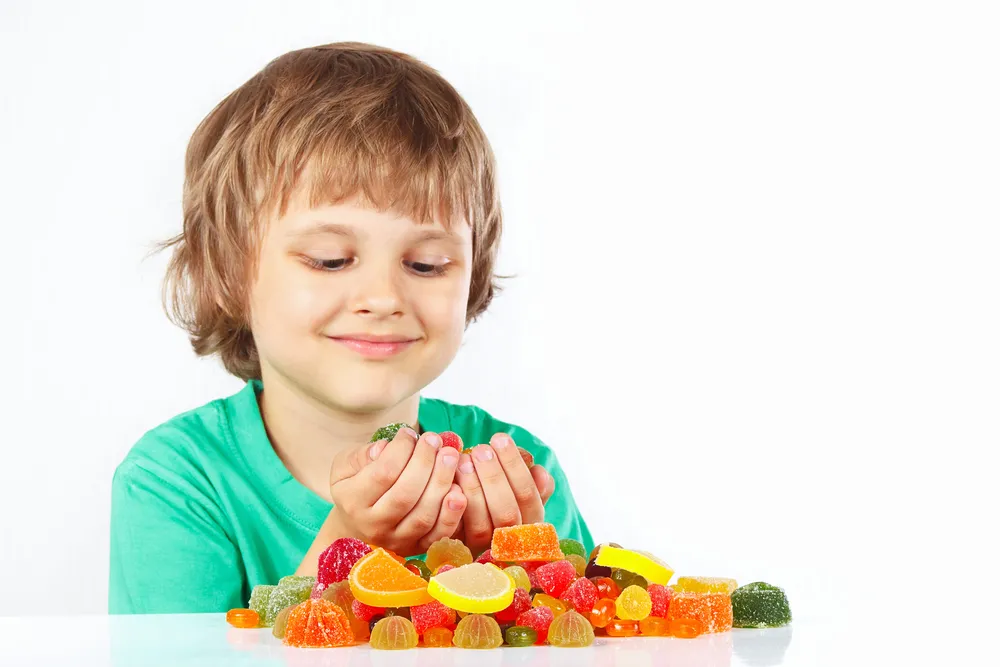
Gummy candies are a fun treat, but they might be more synthetic than you’d think. They often contain gelatin, sugar, artificial flavors, and a host of other additives to achieve their bright colors and chewy texture. Dr. Robert Lustig, a pediatric endocrinologist at UCSF, warns about the excessive sugar and artificial ingredients, highlighting how they can contribute to health issues like obesity and metabolic syndrome. If you crave something sweet, consider making your own with natural fruit juices and a healthier gelatin substitute. Homemade versions can offer the same satisfaction without the extra chemicals.
Your pet might be tempted by the smell of fruit-flavored gummies, but it’s important to keep them away. The sugar and artificial ingredients are a no-go for pets, and they could potentially choke on the chewy texture. If you’re in the mood to share a snack, consider fruit slices or pet-safe treats. These alternatives keep your pet happy and healthy without the risks associated with processed candies. Always prioritize their health and well-being when choosing what to share.
8. Frozen Dinners
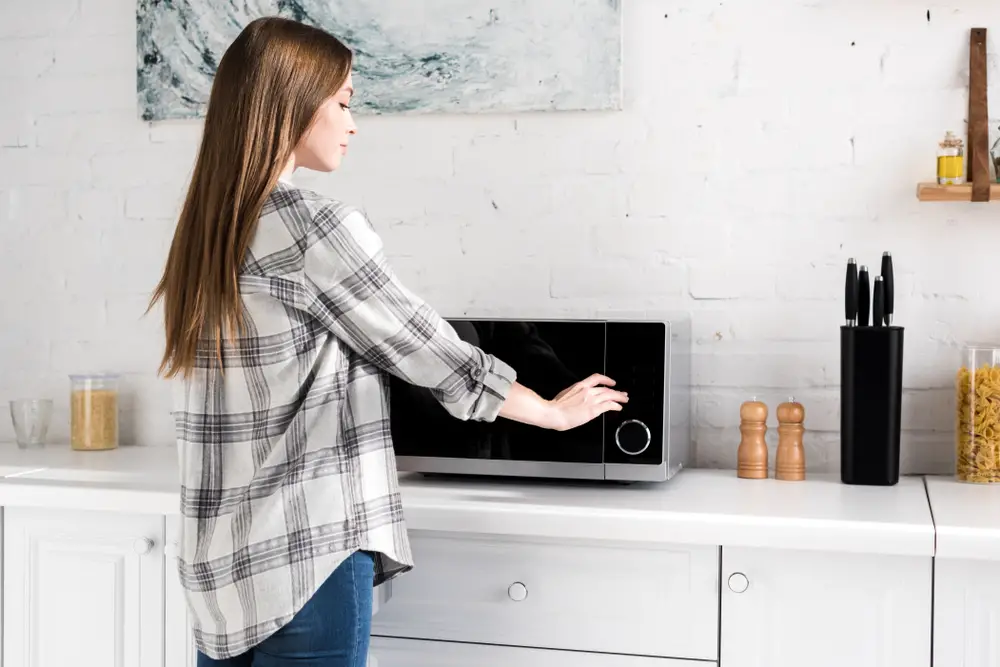
Frozen dinners are a quick solution for a busy weeknight, but their convenience often comes with high levels of sodium and preservatives. The allure of a ready-to-go meal is understandable, but these meals often contain ingredients that are far from fresh. The packaging might portray health, but the reality is many are filled with additives to maintain flavor and texture after freezing. While not all frozen meals are created equal, it’s wise to read labels carefully and opt for those with fewer ingredients and recognizable foods. Preparing meals ahead of time and freezing them could be a healthier way to enjoy the same convenience.
You may not be tempted to share your frozen dinner with your pet, and that’s a good thing. The high sodium levels and preservatives aren’t suitable for their diet. Pets require food that’s fresh and tailored to their nutritional needs rather than human convenience foods. If you’re preparing a meal for yourself, consider cooking a little extra of the pet-safe ingredients. This way, you can share a moment with your pet while ensuring they consume food that’s good for them.
9. Processed Meats

Processed meats like hot dogs, sausages, and deli slices are often packed with preservatives, sodium, and other additives used to extend shelf life and enhance flavor. These meats might be easy to pack for lunch or a quick meal, but they often come with a side of nitrates and nitrites, which are used to keep them looking fresh. These compounds have been linked to potential health issues when consumed in excess. The convenience of processed meats is undeniable, but choosing fresh or minimally processed options can make a significant difference in your diet. Look for meats that have fewer ingredients and are closer to their natural state.
While processed meats are tempting to share with pets as a quick treat, they’re not the best choice for their health. The high sodium and preservatives found in these meats can be harmful to animals. Opt for pet-approved meat treats that don’t contain the harmful extras. You can also cook a little extra plain, unseasoned meat when making meals to share with your pets. This ensures that they get the protein they need without the unhealthy additives.
10. Packaged Snacks

Packaged snacks like chips, crackers, and pretzels are go-to items for quick bites but often contain a mix of artificial flavors, dyes, and preservatives to make them shelf-stable. These ingredients might give the snacks their appealing taste and long shelf life, but they also make them far from natural. The salt and flavorings may make them addictive, but moderation is key to avoiding health issues. Making your own snacks, such as roasted nuts or homemade trail mix, can provide the same satisfaction with more wholesome ingredients. Opt for snacks with labels that have short ingredient lists you can understand.
Sharing a bag of chips or pretzels with your pet might seem harmless, but it’s not the best choice for them. The high salt content and artificial ingredients are unnecessary and can be harmful. If your pet is interested in having their own snack, choose something specifically made for their dietary needs. Pet-friendly snacks are formulated to provide the necessary nutrients without the extras found in human snacks. This keeps their diet balanced and avoids potential health issues related to processed foods.
11. Energy Bars
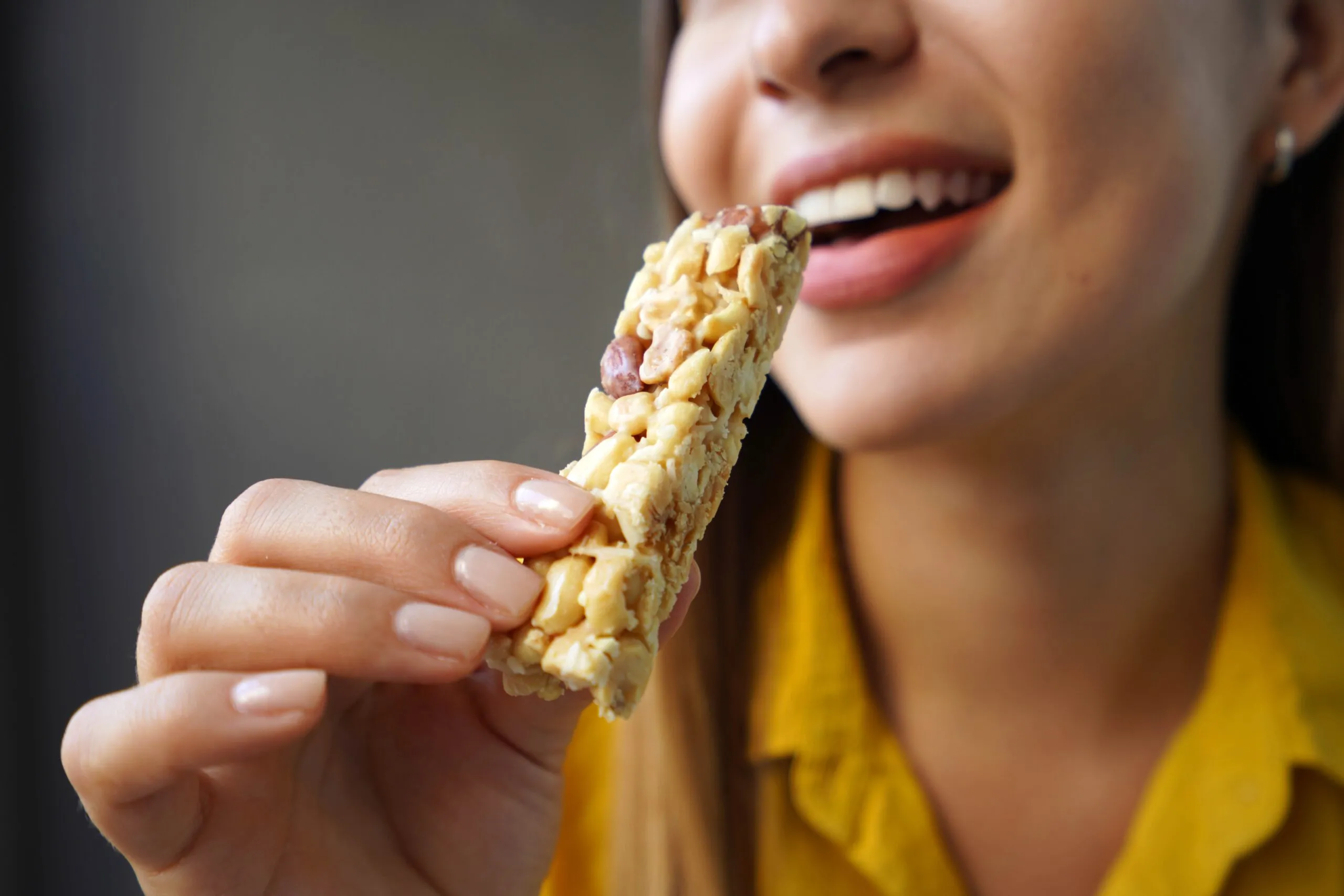
Energy bars market themselves as the perfect on-the-go meal replacement, but many are filled with sugar, artificial flavors, and preservatives. These bars claim to be healthy, but the reality is they often come with a long list of ingredients that are anything but natural. While they offer convenience, they might not provide the clean energy you’re looking for. Making your own energy bars or choosing those with whole food ingredients can be a smarter choice for both your body and taste buds. Reading labels and understanding what’s inside is key to making informed decisions.
Sharing an energy bar with your pet isn’t a great idea, either. The sugar and artificial ingredients aren’t suited for their systems, and some bars can even contain ingredients harmful to pets, like chocolate or certain nuts. To keep them healthy and happy, stick to treats designed specifically for animals. These treats are formulated to support their dietary needs without the unnecessary extras. Keeping your pet’s health in mind ensures they enjoy snacks that are both safe and satisfying.
12. Ice Cream
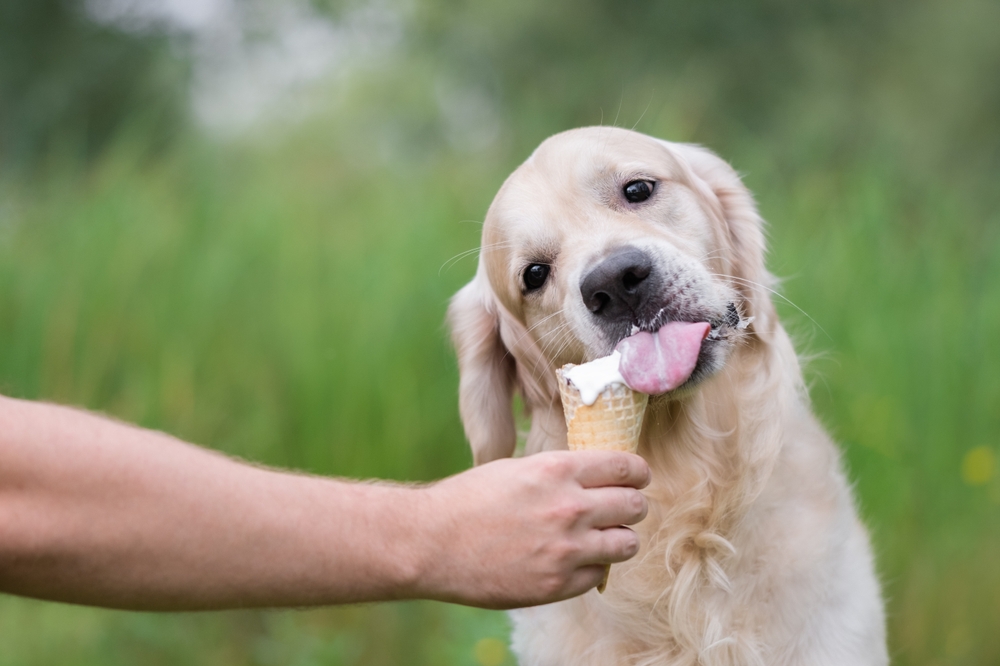
Ice cream is a beloved treat for many, but it can be surprisingly artificial. Many commercial ice creams contain emulsifiers, artificial flavors, and stabilizers to maintain their creamy texture and extend shelf life. These additives can make the treat less wholesome than the simple combination of milk, sugar, and cream you might hope for. Opting for brands that use fewer ingredients or making your own at home can provide a purer and more delicious experience. Those looking for healthier options might also consider frozen yogurt or sorbet, which often contain fewer additives.
Your pet might be intrigued by the sweet, creamy allure of ice cream. However, the high sugar content and dairy can be problematic for animals, especially those that are lactose intolerant. If you want to give them a frozen treat, consider pet-safe ice cream available at pet stores or homemade frozen treats made from safe ingredients. This way, they can enjoy their own version of a cool delight without the digestive issues. It’s all about finding alternatives that cater to their unique dietary needs.
13. Breakfast Cereals
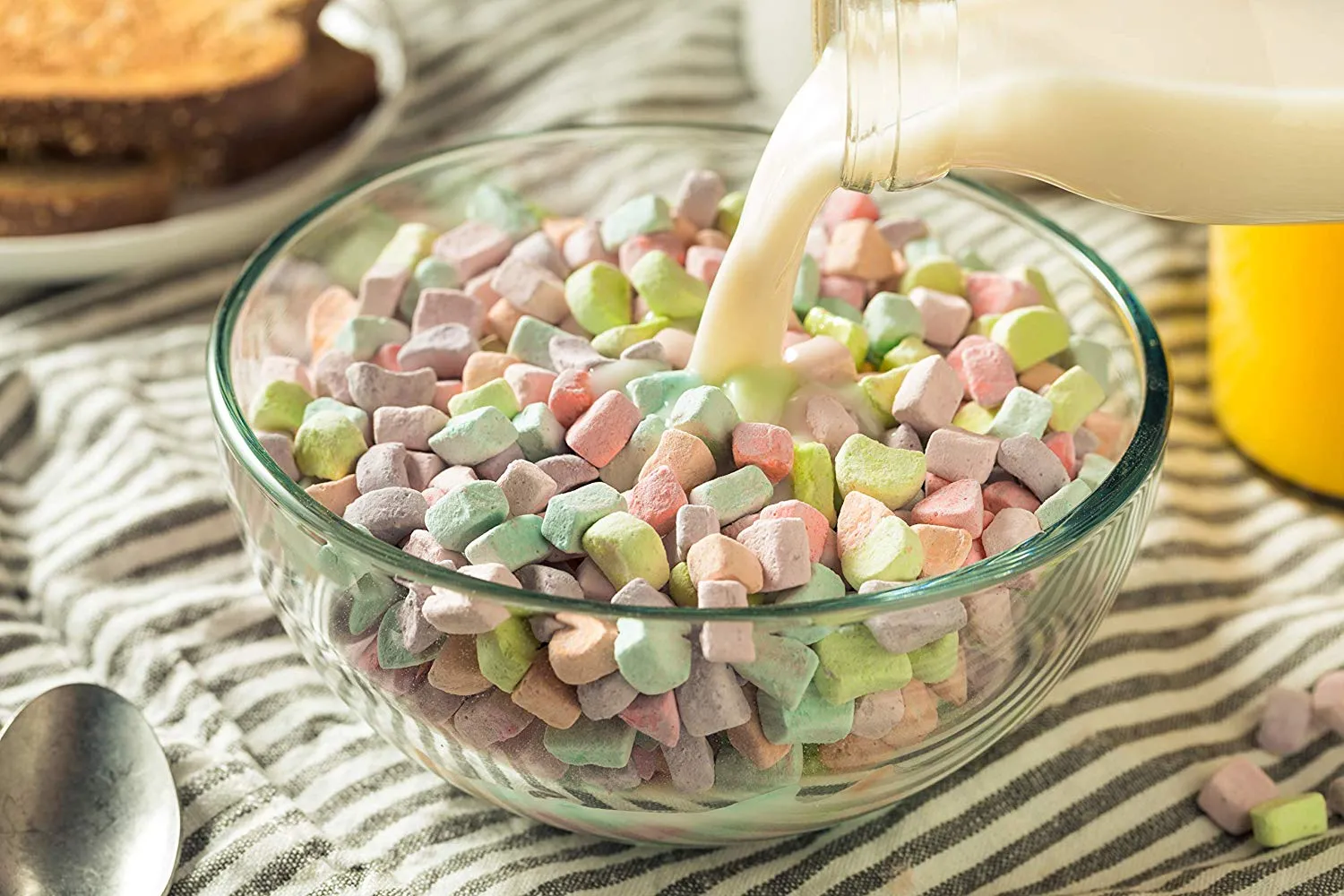
Breakfast cereals might seem like a healthy way to start the day, but many are filled with sugar and artificial colors to make them more appealing. These additives can make cereals more similar to candy than a nutritious breakfast option. While cereals are quick and easy, choosing those with whole grains and minimal added sugars is essential for a healthier meal. A great alternative is opting for oatmeal or homemade granola, which offer whole grains and fewer processed ingredients. Take the time to check labels and understand what goes into your morning bowl.
If your pet happens to be curious about your cereal, it’s best not to share. Many cereals contain chocolate, raisins, or other ingredients that can be harmful to pets. Instead of sharing your breakfast, consider giving them their own treat specially designed for them. Pet-approved options ensure that they receive a balanced diet while satisfying their curiosity. Making informed choices for both you and your pet can lead to a healthier lifestyle for everyone.
